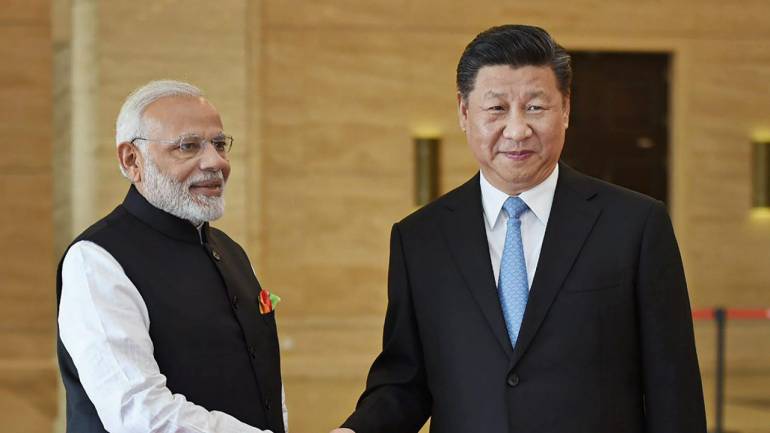Despite threats of violence from the Taliban, a large number of people queued up before the polling booths to cast their votes for 250 parliamentary seats in Afghanistan recently. With this, myths so readily put forth by Western commentators that Afghans don’t want democracy have been once again debunked. This has also shown their readiness for the next presidential election to be held in April 2019.
It will be third presidential polls in the country which is yet to fight off challenges posed by the Taliban, who according to a BBC report, fully controls four per cent of Afghanistan, but is actively present in 70 per cent of the land locked nation. This speaks volume of the paradoxical situation that Afghanistan is in today. America which vowed to smoke the Taliban out of the land locked nation is backing the terrorist group for peace talks with the Afghan government so is China and Pakistan. India is against any talk with the group unless it renounces arms, accepts Afghanistan’s current constitution and shows faith in democracy.
What surprises India is that even Russia has come out in support of the talks with the Taliban. Moscow has cited growing presence of ISIS in Afghanistan as the key reason for its rooting for the talks with the Taliban. In fact, each country is visualizing Afghanistan and its current security situation according to its own geo-political interest, thereby, making the land-locked nation a virtual playground for all regional and international players. Once the Taliban is allowed to have a slice of power in Kabul, Indian authorities feel, Pakistan will be in driver’s seat in the region. With ISIS already present in the region, the Taliban’s arrival in Afghanistan’s power structure will prove to be dangerous for India’s security establishment which fears Kashmir, already on the boil due to terrorism, will become a den for ISIS and other terrorist groups’ activities.
Tribal health in India: A long neglected issue
It should be remembered that even as Indian armed forces may not have set their boot on Afghanistan soil, India is already having a strong security arrangement with Kabul so much so that New Delhi provides training to 300 personnel of the Afghan National Forces annually. Around 5000 personnel of ANF have been trained by India. In order to strengthen its defence forces, Kabul has asked for the supply of more helicopters, assault rifles, army trucks and armoured vehicles. After gifting four MI-25 attack helicopters to Afghanistan, India has also agreed to provide their spare parts to the insurgency-hit nation. One of the key developmental partners of Afghanistan, New Delhi has also showed its willingness to contribute to build strategic assets in the land locked country. In view of security reasons, New Delhi has also decided to work out a plan for a stronger security partnership with Afghanistan which includes building modern training infrastructure for the ANA in the country.
In all such deals, Moscow has been kept in loop as majority of weapon-system supplied or under the consideration for supply is Russian-built. Moscow is concerned about the presence of ISIS in Afghanistan. But strangely, Russia’s worry about ISIS’s transnational outlook and perceived threat from it, is completely at variance with the Eurasian nation’s stand for the Afghan Taliban. Once considered as inveterate enemy of Russia, the Afghan Taliban enjoys backing from the Vladimir Putin administration since 2015. It is accused by the US and European countries of supplying weapons to the Afghan Taliban.
Does India’s Tajikistan conundrum have answers in strategy over PoK?
Though Russia has denied the allegation, but its support to the Afghan Taliban has startled India and Afghanistan also. In fact, New Delhi and Kabul are on the same page on the issue of talks with the Taliban. Their stand is any negotiation with the insurgent group should not be held without the latter renouncing violence, accepting Afghan Constitution and the internationally known “red lines” like right of the people, especially women’s right, right to education and believe in democracy and its norms.
On the other hand, China fears that if insurgency continues in Afghanistan then it will impact on its Belt and Road initiative of which the land locked nation is a part and also future hub for China-driven trade and commerce in the Central Asian region. Yet it has not been able to leverage its political or economic weight on Pakistan, the South Asian nation which aids and abet terrorism in Afghanistan. It is because of this, China, despite investing in Afghanistan’s coal mines and iron ores, has not been able to extract minerals from there.
However, in the Afghan’s quagmire, India wants to play a safe game. While it has refused to send its forces to the land locked nation, it has not stopped itself from committing to new strategic dynamics of the region. Despite several challenges, India is committed to development of the Iran-based Chabahar port. Both berths of Iran-based deep sea port are expected to be fully operational in 2019. Once they are operationalized, India will get an alternative route to Afghanistan and physical connectivity with Central Asia and Russia will become a reality. Chabahar will be connected to International North-South Transport Corridor (INSTC), a ship, road and rail connectivity project which is backed by India, Iran and Russia, on the other hand, it will be linked with Afghanistan through Chabahar-Zahedan-Hajigak railway line that will be built by India’s Ircon International.
Why US is keen to reset its relations with Pakistan
Hajigak is the mineral–rich region of Afghanistan where seven Indian companies, including the country’s public sector steel giant SAIL have acquired mine. China has also acquired cooper mine in Mes Aynak and iron ore mine in the Hajigak region. Neither India nor China is able to extract mines from Afghanistan because of the prevailing security situation. But China which shares close border with Afghanistan wants to increase its influence in the land locked nation for economic and strategic reason. It wants peace to prevail there. China has included most of Afghanistan’s neighbours and nearby countries in the Shanghai Cooperation Organisation in order to coordinate policies towards Afghanistan.
Post Wuhan informal summit between Prime Minister Narendra Modi and Chinese President Xi Jinping, the two countries have begun a new chapter in Afghanistan. Launch of joint India-China programme to impart training to 10 Afghan diplomats should be seen in this context. They have planned to join together for other capacity building projects in Afghanistan. But question is: Will China ask its all-weather-friend Pakistan to stop exporting terrorism to the war-torn nation for peace? Will it prevail on Pakistan Army and ISI to stop financing the Taliban? Issue is very complex.
Why India invited Afghan and Uzbekistan Presidents prior to Putin’s visit?
Disclaimer: The opinions expressed in this article are the personal opinions of the author. The facts and opinions appearing in the article do not reflect the views of NEWSD and NEWSD does not assume any responsibility or liability for the same.


















